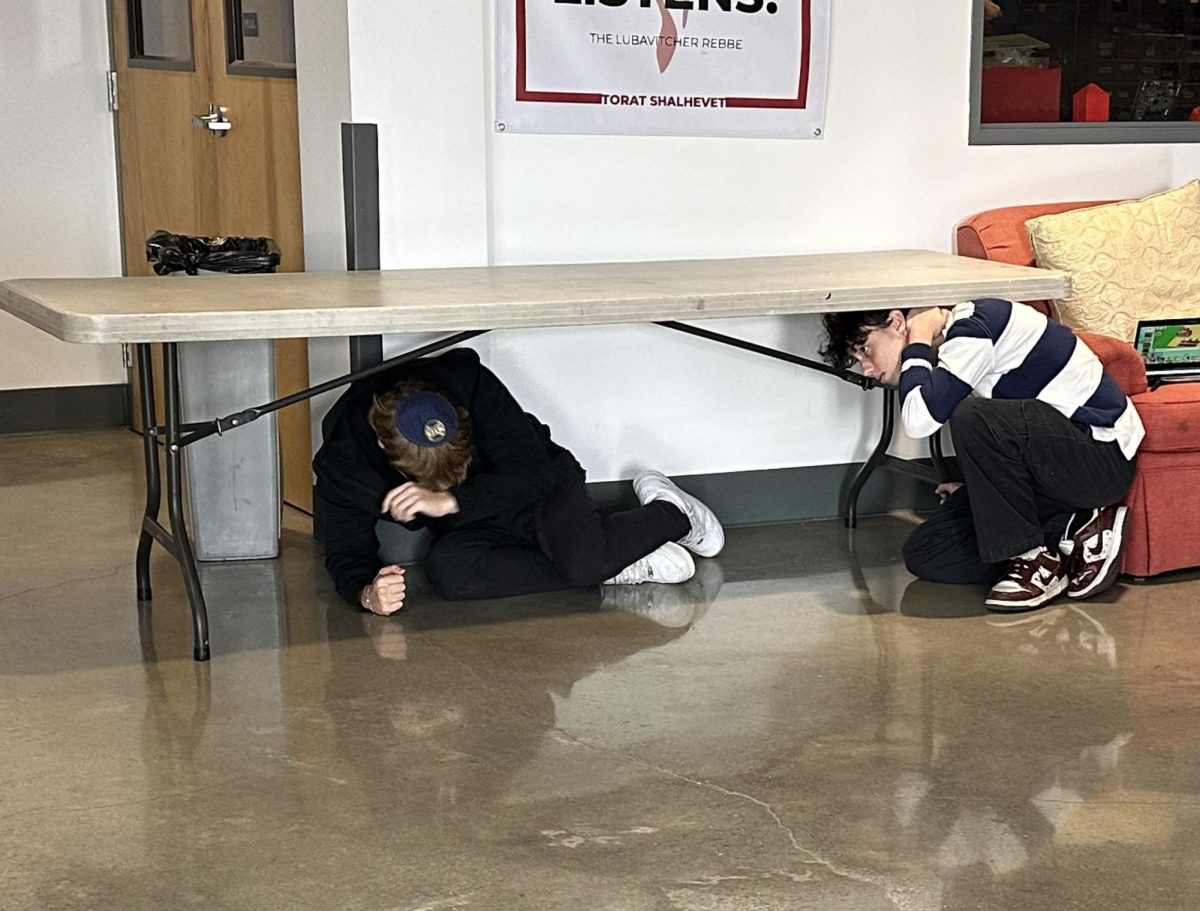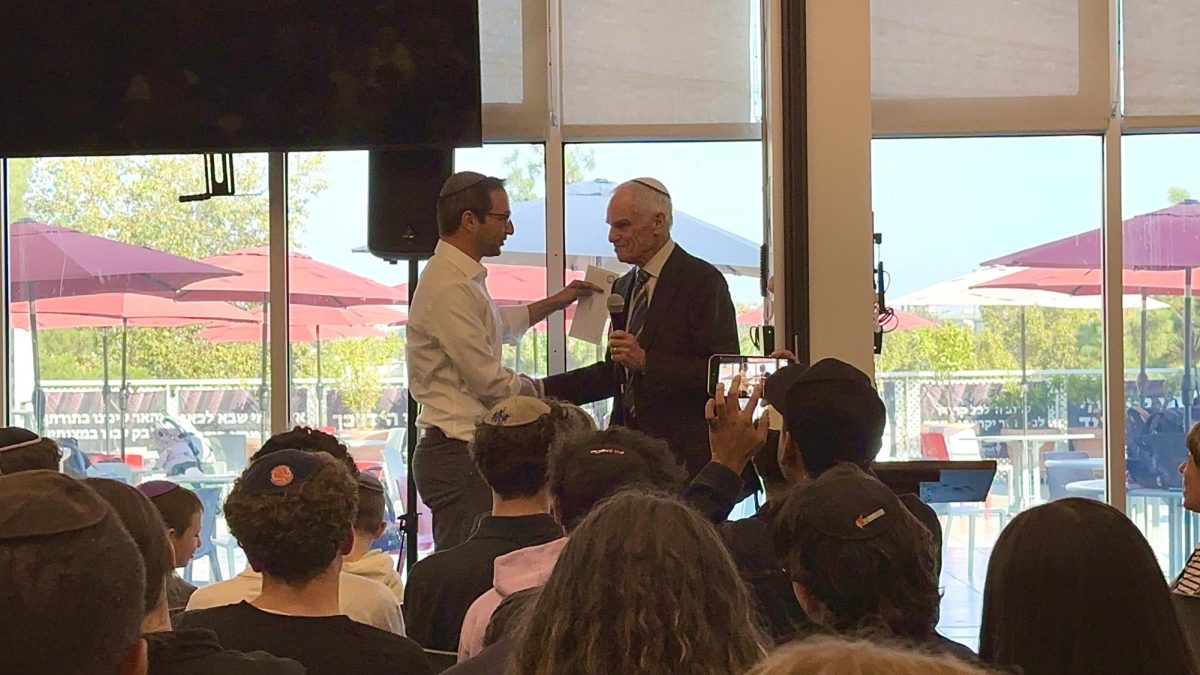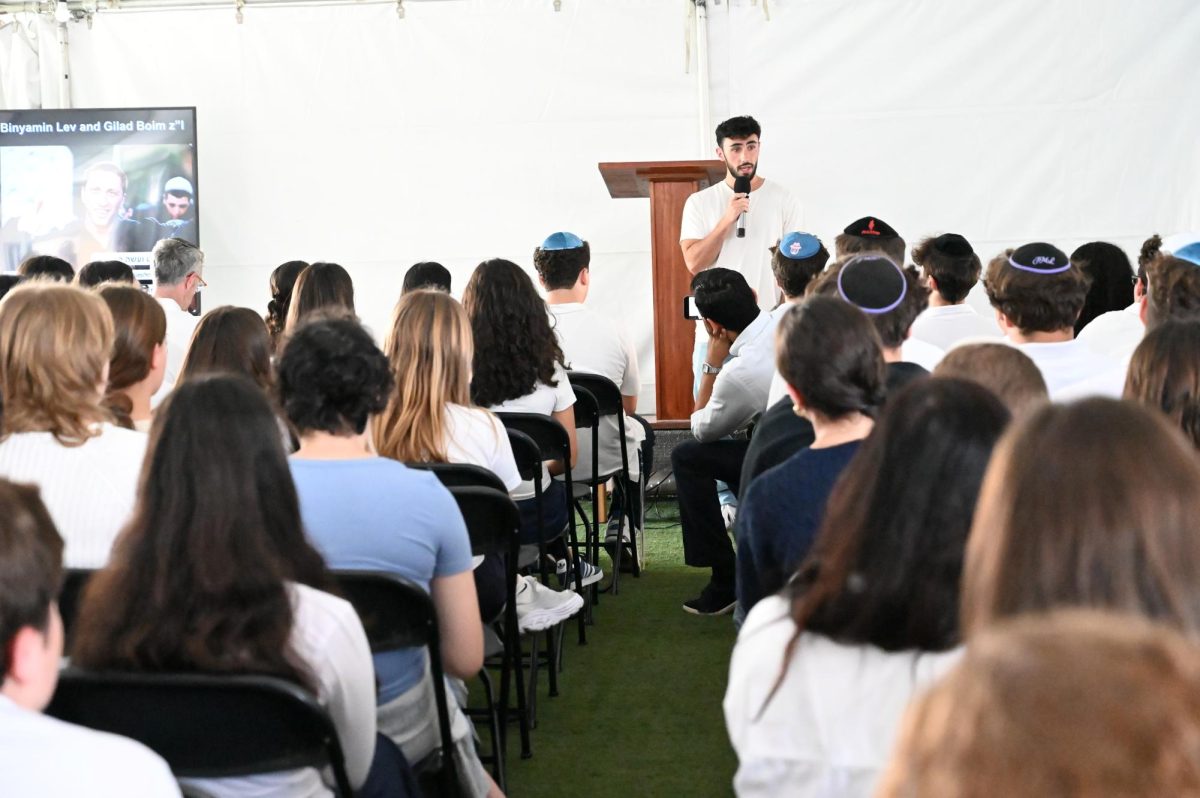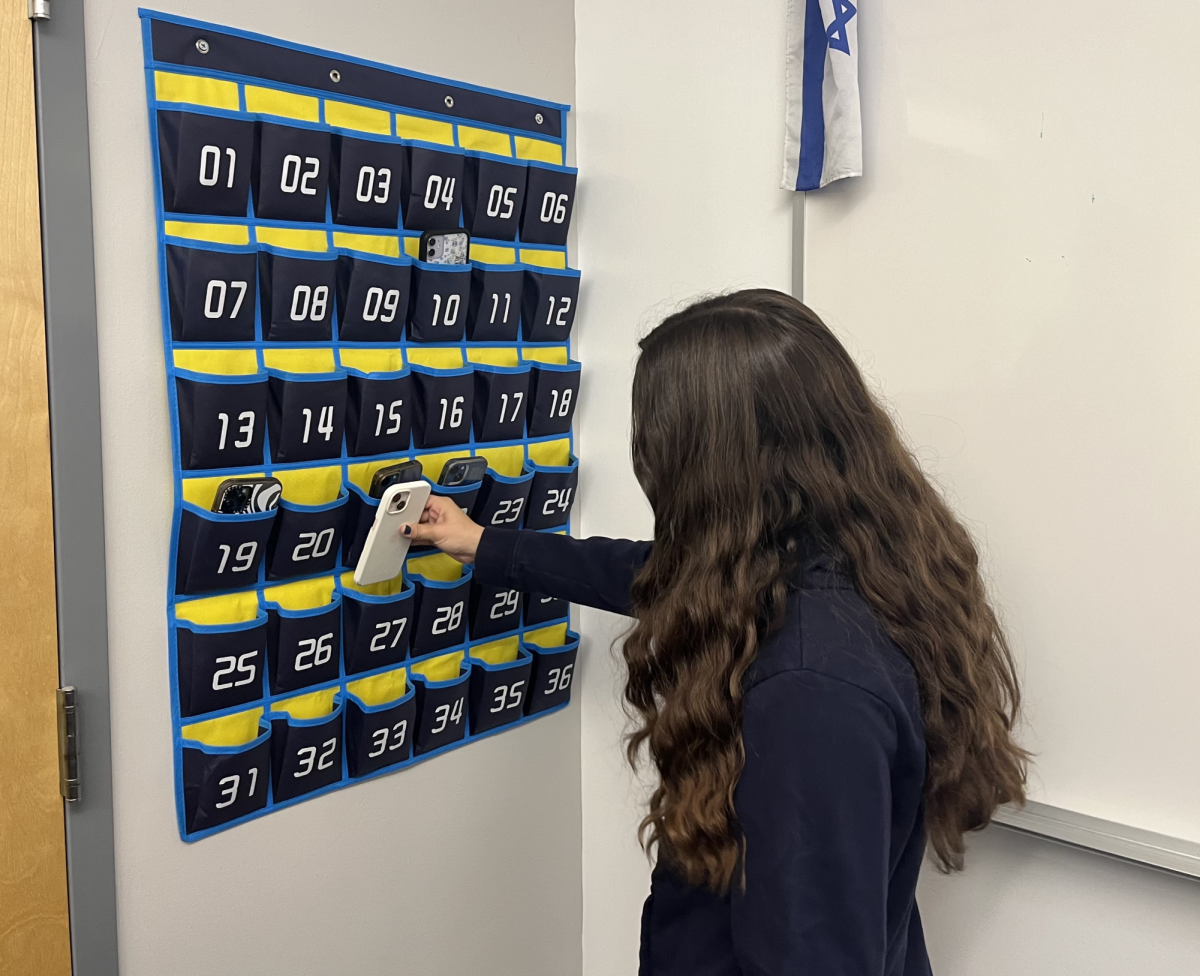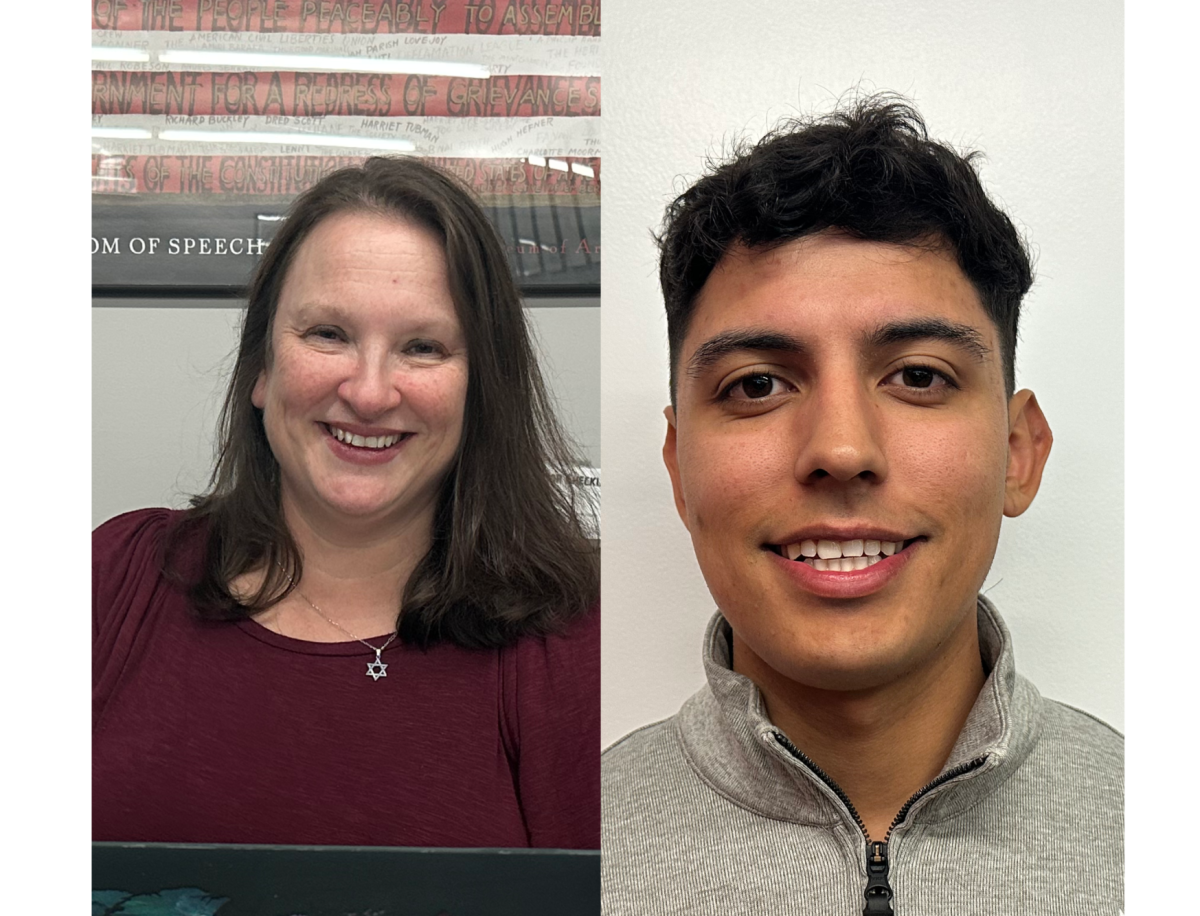Sophomore Sophie Katz, the Boiling Point’s Outside News Editor, searched for three months for Muslim teenagers in Los Angeles to interview for a story about their experiences and feelings during the current conflict in Israel and Gaza.
She found two, one who supported both sides and the other who strongly opposed Israel. Sophie also interviewed the director of a youth cohort at an organization that brings Jewish and Muslim teenagers together to have conversations, and a current Shalhevet senior who participated in that same cohort a few years back.
One of the Muslim teenagers said Israel was committing genocide and that she did not believe Hamas had committed atrocities.
The Boiling Point published Sophie’s article, titled “‘The exact same hurt,’” on April 4, and posted it to its Instagram on April 11. Reactions to the Instagram included accusations that Shalhevet was giving pro-Palestinians a platform for misinformation and hate. Head of School Rabbi David Block told faculty advisor Mrs. Joelle Keene to take down the story from all Boiling Point postings later that day.
It was the first time the administration had ordered the paper to remove an active story. The story is also not published in today’s print edition.
Rabbi Block said the article was not something “our community can hear right now,” in light of the horrific attacks on Israel that took place on Oct. 7. He said this was supported by the way in which some people reacted.
“My feeling is that this article would both give people the wrong impression about Shalhevet,” Rabbi Block said in an interview May 29, “and because they make snap judgements, it would have very serious implications for whether they’re going to consider sending the next generation of people who should be Shalhevet students to Shalhevet.”
He said empathy was important and we should mourn the loss of innocent life on both sides, but since “our community is still mourning” they should not be presented with this article.
“I’ll say that there’s a little bit of nuance here,” Rabbi Block said, “because it’s not that I agree that such an article can never be shared or understand the other side. There’s more depth than that. But to me, I provide education for our community, and so if our community can’t handle something, I do have to consider that.
“We still don’t know where our hostages are. As long as they’re still there, I think this is a very open wound. In many ways, I think that we’re still sitting shiva.”
Co-Editor-in-Chief Tali Liebenthal agreed with Rabbi Block that the whole community is in mourning, but opposed making the story inaccessible to readers.
“Everyone is grieving,” she said. “We are grieving the fact that there are people in this world who think that we are murderers and that we are genocidal. That’s part of the grief, that’s part of the sadness. But I don’t think that’s going to make anyone’s pain go away. We should be able to look at those opinions, look at that side, and grieve and be sad.
“When I have to speak to people who disagree, who genuinely believe we are committing genocide, who think that Israel does not have a right to exist – that is very painful for me. But I think that it is a pain that is inescapable today, and I don’t think that the Boiling Point has any responsibility to shield our readers from that pain.”
While it was still up, an anonymous comment on the story on the Boiling Point’s website said: “Absolutely disgusting that our Zionistic Modern Orthodox School would post something like this. Am Yisrael Chai.”
Another stated: “I really think this could have been written in a way which doesn’t shine such a negative light on Israel.”
Boiling Point staff members heard reports of backlash from at least one donor, and from parents of 8th-graders whose children plan to attend Shalhevet next year, at least one of whom threatened to not send their child to the school if the article was not removed.
Sources for this information were members of the school administration.
Other reports stated that people from outside of Shalhevet called the school and the paper pro-Palestinian, according to information shared with Boiling Point staff.
The story got 397 views on the Boiling Point website before being taken down.
When Rabbi Block first said to remove the story, he suggested he’d be willing to republish an altered version. Sophie changed it and sent him the new version on May 13.
“I’m willing to make changes to the article,” Rabbi Block said May 22. “I think it’s appropriate to be reposted at a later time, but that later time – I don’t know what that is yet. It’s not today, because I still think that we’re grieving.”
Tali said that hearing the experiences and opinions of people who don’t agree with you will always be hard.
“If we’re going to come out of this stronger and fight for Israel and fight for our right to have a state, and fight against all the people who think that we’re wrong, we need to understand that side,” Tali said.
Tali said by showing Boiling Point readers different perspectives, students could face opposing viewpoints when they encounter them in the world. She said avoiding the pain of hearing anti-Israel opinions does not lessen it anyway.
Sophie said she was not affected by the initial reactions, since at first there were only a few comments on the website. But as the backlash accumulated, she understood the gravity of the situation.
“Inevitably, with doing good journalism there will be people who don’t like what you’re doing,” she said. “But you just have to keep doing it anyway because it’s important.”
She is worried about the fact that many people did not seem to understand the purpose of the Boiling Point or what an article actually is.
“The fact that I interviewed a person who is anti-Israel and wrote their opinion in an article does not mean I endorse or agree with anything that person said,” Sophie said. “The Boiling Point operates as a real newspaper, meaning what we publish does not reflect the opinion of Shalhevet, nor does it reflect the opinion of the writer.”
The Boiling Point had already published nine stories about the Jewish experience and perspective in the weeks following Oct. 7. Many of those stories have already won national awards, and therefore are likely to have been read in schools across the country.
She said she wrote the article because through difficult times it is all the more so important to hear the other side.
“To only know one side doesn’t help anyone,” Sophie said in an interview. “I am of course feeling the pain from Oct. 7 every day since then. It was so difficult for me to interview people and hear them say such hateful things about Israel. But we have to hear the viewpoints of people who do not agree with us. It’s necessary to understand and be educated on all aspects of this war.
“The purpose of our paper is to get the truth and part of the truth is the experience of Muslim teens, so we had to give that to our readers.”
Mrs. Keene said she was surprised by Rabbi Block’s request, noting that the Boiling Point had covered Muslim viewpoints without complaint many times in the past, including during and right after conflicts with Hamas.
She said journalism is most important in times of crisis, when it can encourage understanding between opposing sides – especially opposing sides in the same city or country.
“Sophie’s story was trying to introduce Jewish teens to Muslim teens,” Mrs. Keene said. “They are here, and we don’t know them. They go to Hamilton High School. They go to the same stores and movie theaters as you guys.
“We don’t normally cross paths, so Sophie went out to find them and let us know what they’re thinking. Turns out they’re not all thinking the same thing – just like you guys aren’t.”
In Sophie’s original story, the first interview was with an area high school student who advocated for a ceasefire. He said he was most affected by what he learned about the war from his conversations with some Jewish friends or from social media. He said he was not on either side, because he could see validity on both sides. His mother is Muslim and his father is Christian, and he said his parents had different opinions too.
The second interviewee was also a teenager, but a freshman in college, and she said things in her interview that were harsher towards Israel. She feels that the Palestinian side is not as talked about as the Jewish side, and that on social media, the sides are not spoken about proportionally.
Ms. Tasneem Noor, the facilitator of the youth cohort, was quoted in the article as saying that both Jewish and Muslim teenagers share a similar feeling of insecurity during these times.
“It’s natural for you to see the pain of your community, or the pain of the people that you know,” Ms. Noor said in the article. “And if you don’t see someone feeling that pain for your community, then it hurts.
“If anything, that’s the same in the Muslim and Jewish community right now. We’re all feeling that pain of feeling alone.”
It’s not unusual for the Boiling Point to use a quote as a headline for a story, and for this article, the headline, ‘The exact same hurt,’ was a quote from Ms. Noor.
The story said she felt “that both Jewish and Muslims LA teenagers ‘are feeling the exact same hurt’ about the war.”
Student reaction was divided. Sophomore Shevy Gomperts, a board member of Shalhevet’s Israel advocacy club Firehawks4Israel, was one of many who opposed it, and said the article allowed people who are “antisemitic and anti-Zionist to have a voice.”
“By writing the article the Boiling Point and Shalhevet gave validity to their argument,” Shevy said in an interview, “and that is definitely not something a Jewish or Zionist school should do… even if that wasn’t the intention of the article, I still think that that was the result.”
Sophomore Hannah Carr disagreed with Shevy. She said though she was taken aback at first by the headline, once she read the story she understood how it was relevant to the content.
Hannah thinks the story is important because kids at Shalhevet don’t know what people on the other side are experiencing. The Boiling Point helps her and other students understand different perspectives in the world, she said, and in this case it “humanized the other side.”
“All it showed was empathy towards literal teenage kids who go to other schools,” Hannah said.
Tali said while she believes in the purpose of the story and the importance for the community to read it and not retreat from different opinions, no matter how painful, she would have changed certain aspects.
For example, she said, she would have changed the headline, which she knew had upset people.
“I understand where Rabbi Block is coming from,” Tali said. “It’s his job to protect and lead the community, and everyone was in pain. And I see that. But I think it’s a missed opportunity…this could have been a moment to explain that the Boiling Point is not the representation of the school.”
Mike Heistand, Senior Legal Counsel with the Student Press Law Center in Washington, D.C., said California law has unique protections for student journalists, but not for their advisers.
California’s Leonard Law specifically protects students at private schools as well as public schools, he said, and “students at a private school cannot be punished for engaging in speech activities that would be protected if it was at a public school.” The law has an exception for religious private schools, when the subject is religion.
“If you were to put the story back up, repost it online, and if you were punished for it, the Leonard Law might kick in and it might protect you from the punishment,” Mr. Hiestand said. “It would not probably protect an employee. So as much as your adviser didn’t want to, she perhaps was legally required to do so if she wanted to keep her job.”

(BP media library)
Mrs. Keene, who is leaving at the end of this year, said she didn’t go against Rabbi Block’s request because the Boiling Point’s independence is based on trust between the head of school and the adviser.
“Administration has never interfered in this way before,” Mrs. Keene said. “The relationship between Shalhevet and the Boiling Point is one of trust and respect, and I respect the school and I respect the goals and I believe in the mission of the school.”
She said she had hoped she would be able to persuade Rabbi Block, who is in his third year as head of school, to let her put the story back up, by explaining that tackling difficult subjects was the most important purpose of the Boiling Point and would not damage the school.
She believes she would still be able to do that if she weren’t leaving so soon.
Noting that there were no complaints until the Instagram posting, Mrs. Keene believes part of what people reacted so strongly against was what they saw there: merely the headline – ‘The exact same hurt’ – and a photo of one of the teens, wearing a hijab.
No other information about the story appeared, and so people might have jumped to the conclusion that the article was about Israelis and Gazans, she said.
“We normally don’t retool the presentation of our stories for posting on social media,” Mrs. Keene said in an interview this month. “I think we learned, unfortunately and painfully this spring, that we need to do that.
“People who are used to getting their news from a smartphone screen either via TikTok or Instagram or in other ways, saw a picture of a young woman in a hijab with the headline ‘The Exact Same Hurt,’ and assumed a lot of things about the story that weren’t true and that they would have realized weren’t true if they read it.”



